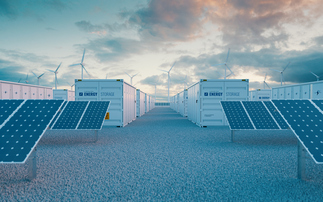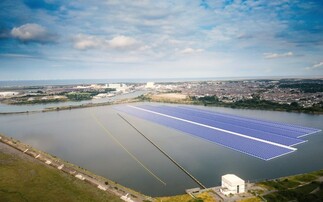Europe's solar market may be slowing at a time when huge opportunities for the technology are popping up all around the world
Radical right-wing groups may rail against action on climate change and renewable energy subsidies, but not even UKIP and America's Tea Party are immune to the lure of solar power.
UKIP energy spokesman and MEP Roger Helmer quietly installed solar panels on his roof and started to collect the government's feed-in tariff, while on the other side of the Atlantic a new "green" faction of the Tea Party is calling for an expansion of solar as a means of competing with monopoly power of traditional utilities.
Whatever their reasons for backing solar, the fact is they are investing in a rapidly growing market for a technology that will prove vital in the fight against rising carbon emissions and efforts to wean the world of its addiction to fossil fuels.
Speaking in London last week, United Nations climate change chief Christiana Figueres named solar as the top technology we currently have at our finger tips to limit global warming. "The fact that it has gone down 80 per cent [in price] since 2008 is really quite astonishing and the fact that there's so much investment into the different facets and applications of solar [is exciting]," she said. "There's solar power in many deserts around the world including Saudi Arabia and now California, which are two very different places. There are also fascinating conversations coming up in the Mid-West part of the United States about Tea Party members putting solar panels on their roof because they don't want the government to be selling them electricity. They want their own electricity." UN officials and Tea Party campaigners are not the most natural of allies, but as Figueres says, "I don't care why they put their solar panels on the roof, I think it's fantastic".
According to new analysis from GlobalData, solar PV witnessed staggering growth between 2006 and 2013, with 32.4GW of new capacity installed in the year 2013, compared to just 1.4GW installed in 2006. By the end of this year, the world is expected to host 169GW of solar PV capacity, a growth of 30 per cent since 2013, states the report.
However, with a number of European countries now scaling back support for solar with the removal or reduction of feed-in tariffs, market demand is clearly shifting.
According to GlobalData, Europe in particular is expected to see a steep decline in growth rates thanks to subsidy cuts in a number of core markets, including Germany, Italy and Spain. Back in 2011, Europe was experiencing massive growth, with more than 22GW installed in one year, but 2014 is set to see just 8.8GW installed and that downward trend is expected to continue, reaching 6.1GW to 6.5 GW a year in the late 2020s.
Encouragingly, the report predicts the UK will continue to grow at a rapid clip, with its share of European capacity climbing from 3.7 per cent in 2013 to 9.2 per cent by 2020 and to 11 per cent by 2025. However, much of this growth still depends on the government putting the right incentives in place to drive mid-scale commercial solar, in order to deliver climate change minister Greg Barker's stated ambition of 22GW by the end of the decade.










